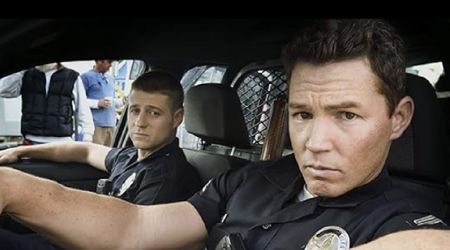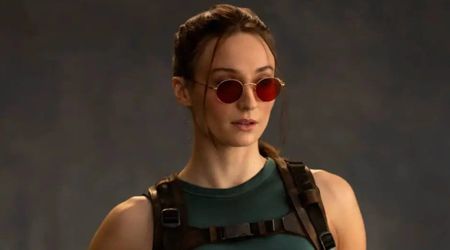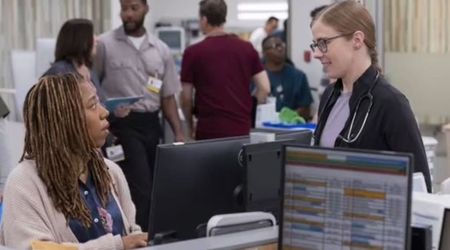'Atlanta's Missing and Murdered: The Lost Children' Episode 5: New evidence links Ku Klux Klan to murders

The series finale of 'Atlanta's Missing and Murdered: The Lost Children' pans in on the final stages of Wayne Williams' trial. The only suspect convicted of two of the 29 murders in Atlanta's Child Murders, Williams has been serving two life sentences at the Telfair State Prison, Georgia.
Following Williams' conviction, that his defence lawyers and the parents of all the victims believe was an unjust move because they believe he is innocent, the case took an unexpected turn. Earlier, an extensive investigation pointed out that there were likely more suspects in the serial murder case like the paedophile, Tom Terrell, who lived in the neighbourhood surrounding the OMNI plaza; child pornographer John David Wilcoxen, in whose house the police found pictures of naked black children; and homosexual sex offender James 'Jamie' Brooks, whom a witness claimed to have seen murdering victim, Clifford Jones. The police conveniently turned a blind eye towards them, possibly because of a power play and orders from higher-ups within the justice system.
A new suspect: Ku Klux Klan

Now, a new suspect had emerged after Lynn Whatley found a package at the doorstep of his office. In a shocking turn of events, Williams' defence attorney Whatley had acquired a package that was specifically addressed to him and contained confidential documents from a corresponding extensive investigation into the white supremacist group, the Ku Klux Klan's possible involvement in the murders of the 29 black children.
The investigation was dated 1981 and conducted undercover by the Georgia Bureau of Investigation, around the time that Williams had been arrested. But the findings from the investigation or the fact that an investigation had been underway was never made public. It had been kept separate from the task force that was investigating the murders and separate from the prosecuting authorities.
The package was an overwhelming violation fo the Brady law. The United States Supreme Court, in a case called Brady vs Marilyn, held that the prosecutors were required to provide the defence with any and all evidence that tends to exonerate or exculpate a defendant because the police and the prosecution tend to collect far more evidence than the defence does. In this case, not all of the pieces of evidence collected amid the investigation for the case were disclosed.
The GBI's investigation was kicked off by detective Aubrey Melton who came forward with an informant, who said he had information about the Klan's involvement with the murders. The GBI took his claim seriously and started an investigation, albeit undercover. The Klan had been very active at the time and had been engaging in a slew of activity that displayed their hatred and hostility against the black people. They'd hold marches, protests that would cause major disruptions to the lives of the common people.
The GBI used wire-tapping to record conversations between the Klan members and reportedly collected cassettes worth of recordings via the informant who had been secretly equipped with the wires. The authorities took three members of the Klan, Don Saunders, Charles Saunders and Terry Saunders, member of the Sanders family who the informant was close with, into custody for questioning. After they denied the allegations made against them, they were allowed to go free.
Sanders family

The evidence that Williams' defence lawyers had obtained centred around the Sanders family, who belonged to the National States Right Party (NSRP) or the New Order of the Ku Klux Klan, which has its headquarters in Marrieta, Atlanta. Don Sanders was the National Secretary of the NSRP, while his father Carleton and his five brothers, Charles, Terry, Ricky, Jerry and James comprised members of the far-right organization.
The members of the Sanders family had a long criminal record which included convictions of child molestation, burglary, assault and battery, wife-beating, statutory rape, armed robbery and drug charges. They were drug addicts as well as long-time drug dealers and never failed to voice their hatred for the black people.
Williams' hearing

Whatley was positive that the new pieces of evidence would help Williams' hearing for a new trial in October 1991. Whatley was accompanied by two of America's well-known attorney Bobby Lee Cook and William Kunstler. They presented the new pieces of evidence to the court to show that Williams was in fact denied his constitutional rights.
The witness that took the stand during this hearing claimed to be the police informant during the 1981 investigation into the Ku Klux Klan. Billy Joe Whitaker infiltrated the KKK to provide inside information about its operations and the Klansmen to the police. At the hearing, he said he came forward to give his testimony because he strongly believed that Williams was innocent.
Whitaker relayed to the defence that he had told the GBI about Charles and Terry Sanders intentions to execute one black boy a month and that they reportedly said they would even start killing black women. He also said Charles Sanders had told about one of the victims, Lubie Geter, and quoted the supremacist's words as saying, "See that little Black …? I'm going to get him I'm going to kill him I'm going to choke the Black… to death."
Several weeks alter Geter's body was found, and they had concluded that he had been strangled to death, and his murder was among those that had been attributed to Williams without evidence.

He also mentioned that the Sanders had in their possession various uniforms including that of the Atlanta Police, which undeniably may have helped them go around undetected. The GBI officers who were called to stand conveniently responded to all questions regarding their questioning of the Sanders siblings and their possible confession to Geter's murder as something "I don't recall", which further proves that something is amiss. JB Jackson, the detective, who conducted the questioning, went as afar as to say that the brother claimed the conversation was a joke since they'd talked about it on April Fool's Day. Jackson also said he had destroyed all of the cassette tapes that had been collected from the wiretapped conversations between the brothers, without listening to all of them fully. A fact to note here is that the tapes were destroyed when Williams' first trial was still pending in late 1981.
Jackson concluded that although he hadn't listened to all the tapes, the Sanders had "no tie, whatsoever, to any murders." Other than bragging about killing the black children among the others, there was no solid evidence that Charles Sanders or any of the other brothers had committed the murders. The hearing concluded with Williams being denied a new trial, and the judge upheld his conviction despite the new evidence presented before the court.
GBI disregarded evidence

Since the case was reopened in 2019, the attorney's assigned to the investigation began piecing together evidence collected from the case. Journalist Karl Evanz said they also began matching the findings from the FBI and GBI case files and discovered some stark differences as well as missing details.
For one, a report said caucasian pubic hair had been found on the bodies of the victims, a detail which seems to have been conveniently left out because the suspect, Wayne Williams, was black. The FBI files also had a report from a young black boy who claimed he was being chased by a white man. However, he managed to escape by hiding in his home. The man left, but appeared later on, looking into his house through the windows and scaring both himself and his mother. The boy went to the authorities with this complaint and recognized the man as Don Sanders from some of the pictures presented to him. The FBI had, however, blacked out the name of the suspect in the file that it had obtained.
A witness, who last saw Geter around a shopping center near where the Sanders family lived, said they saw the boy getting into a tall white man's car, the day he was believed to have disappeared. The man had a long jagged scar on his neck, said the witness. Don Sanders also possessed a similar scar on his neck. Furthermore, dog hairs were recovered from Geter's body, which again points to the Sanders family's involvement in the murders because Charles Sanders had a German Shepherd.
Furthermore, the Whitaker also said the GBI ignored the following conversation that they had wire-tapped:
Don: "...I might get out and ride around a little bit, and I might come by there."
Terry: "Go find you another little kid, another little kid?"
Don: "Yeah, scope out some places. We'll see you later."










